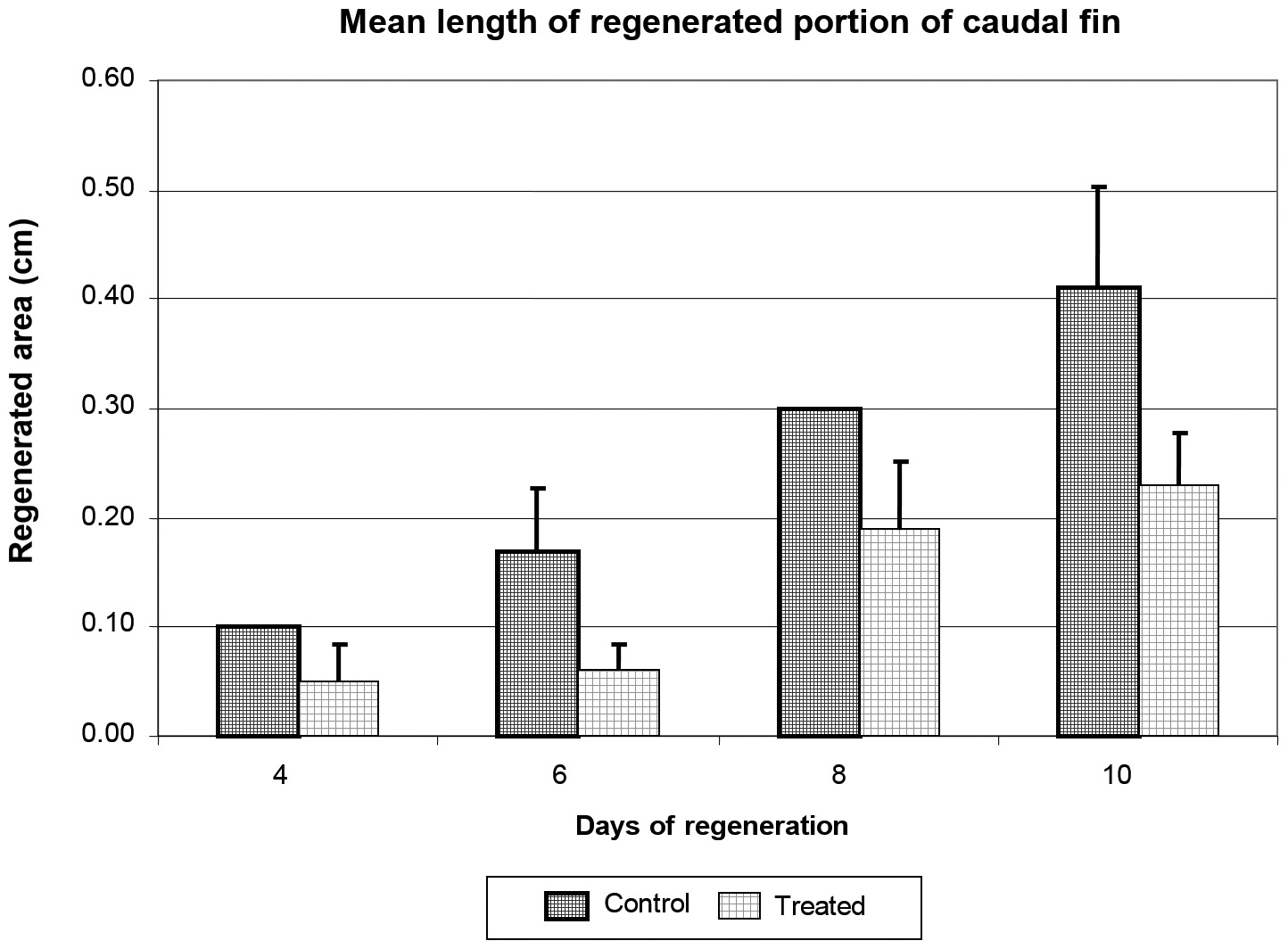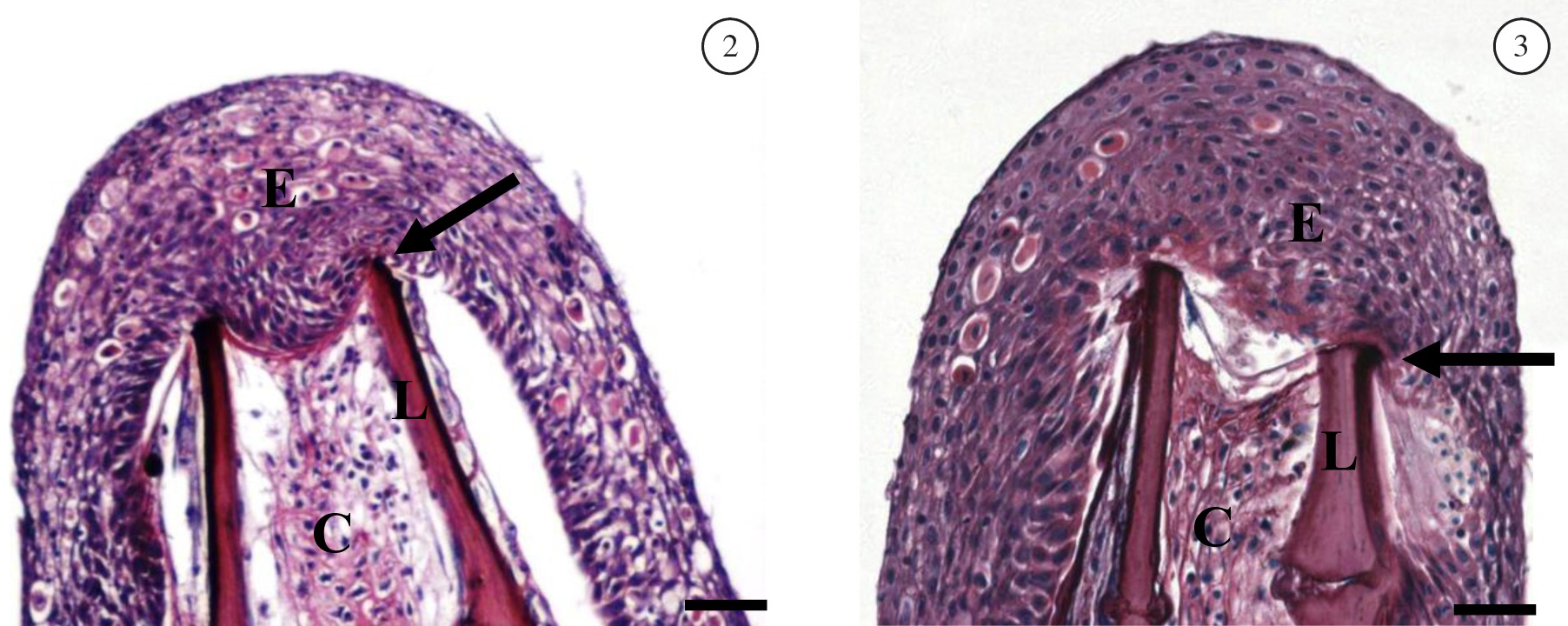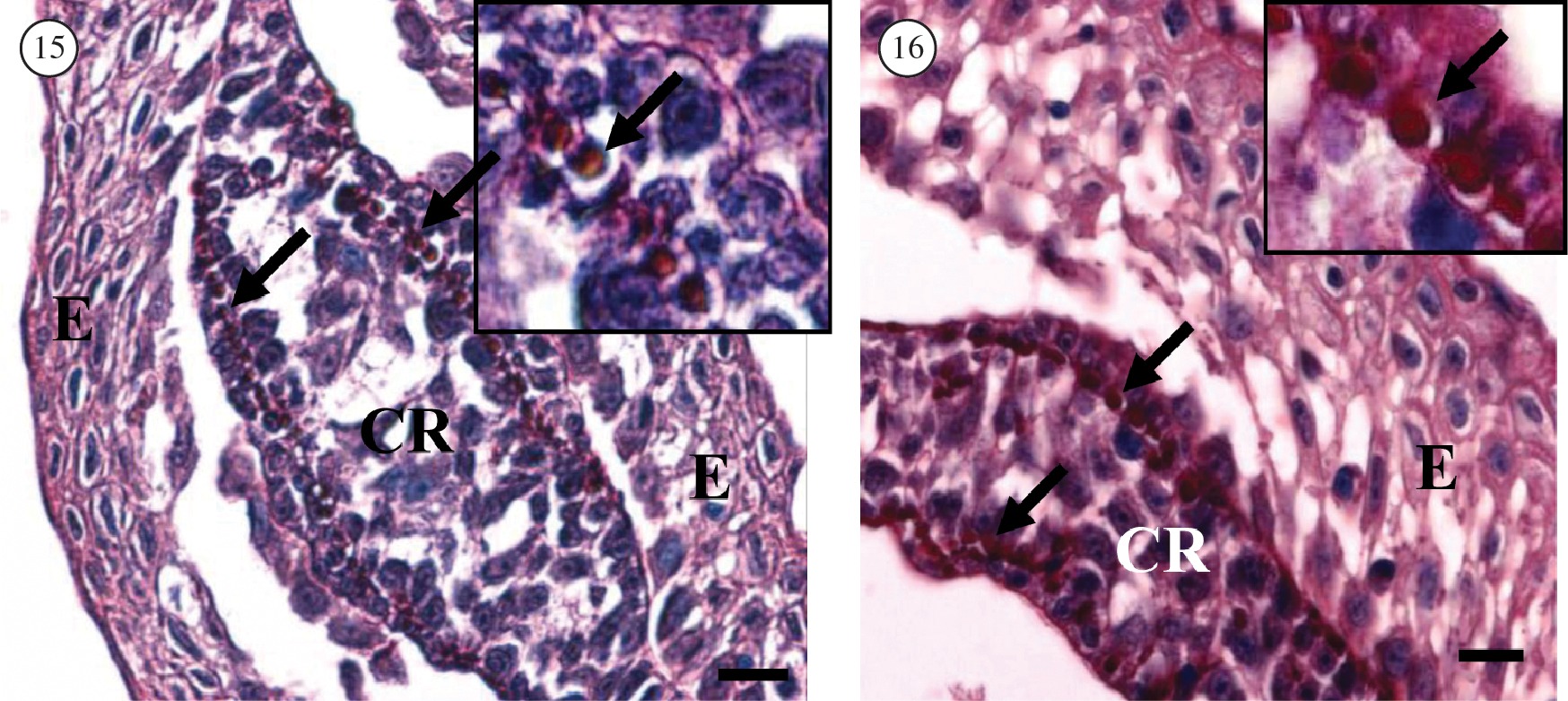Studies have demonstrated that the prolonged use of corticoids can delay the healing process, affecting re-epithelialization, neovascularization and collagen synthesis. As the fins of teleost fish contain a large amount of collagen, the aim of the present study was to investigate the effect of dexamethasone (anti-inflammatory and glucocorticoid steroid widely used in the treatment of rheumatic diseases) during the regeneration process in the caudal fin of specimens of carp (Cyprinus carpio). For such, two glass aquaria were used – one for a group of fish treated with dexamethasone (Henrifarma) in a 20 mg/L concentration and the other for the control group. The caudal fins were amputated transversally and fish remained in their respective aquaria until regeneration occurred. Samples of regenerating fins were collected on days 1, 2, 4, 6, 8 and 10 after amputation. The fins in the control group regenerated normally and grew within the expected in time course. The fins in the group treated with dexamethasone were significantly smaller in comparison to the control group at every evaluation time. Thus, it was possible to verify that, at this concentration of dexamethasone, the regeneration of the caudal fins was delayed, but not completely inhibited. The results show that the caudal fin is a good model for histological studies on regeneration and the action of drug toxicity, but it’s also of great importance the interaction with further studies for a better knowledge and understanding of all the changes in all the phases.
dexamethasone; caudal fin; tissue regeneration; collagen; fish

 Thumbnail
Thumbnail
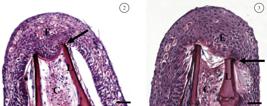 Thumbnail
Thumbnail
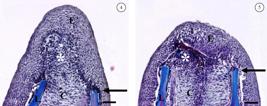 Thumbnail
Thumbnail
 Thumbnail
Thumbnail
 Thumbnail
Thumbnail
 Thumbnail
Thumbnail
 Thumbnail
Thumbnail
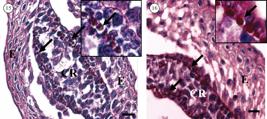 Thumbnail
Thumbnail
 Thumbnail
Thumbnail
